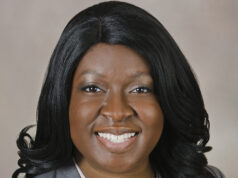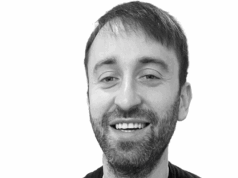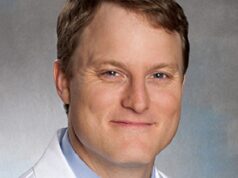 Anticipation is building for the Charing Cross International Symposium 2022 (26–28 April, London, UK, in person and virtual), which this year will address some of the key challenges currently facing the vascular field—from the ongoing impact of COVID-19 on patients and providers, to the pressing matter of the “hurting leg” and unnecessary amputations. A series of 14 Podium 1st presentations will punctuate the comprehensive programme, highlighting new data in all vascular domains.
Anticipation is building for the Charing Cross International Symposium 2022 (26–28 April, London, UK, in person and virtual), which this year will address some of the key challenges currently facing the vascular field—from the ongoing impact of COVID-19 on patients and providers, to the pressing matter of the “hurting leg” and unnecessary amputations. A series of 14 Podium 1st presentations will punctuate the comprehensive programme, highlighting new data in all vascular domains.
In the peripheral arterial session, Alun Davies (Imperial College London, London, UK) will speak on the place of neuromuscular electrical stimulation for intermittent claudication, delivering results from the randomised controlled NeSIC trial.
Addressing chronic limb-threatening ischaemia (CLTI) challenges, Andrew Holden (Auckland City Hospital, Auckland, New Zealand) will outline a first-in-human experience with an intravascular lithotripsy (IVL) system.
The abdominal aortic programme features three Podium 1sts: Cydar executive director Tom Carrell (Barrington, UK) will speak on how artificial intelligence can make aortic repair outcomes more predictable; Fadi Taher (Klinik Ottakring, Vienna, Austria) will outline the technical success of fenestrated endovascular aortic repair after prior endovascular repair, and Kevin Mani (Uppsala University, Uppsala, Sweden) will discuss the relation between volume and outcome in aortic surgery and failure to rescue.
In the ruptured abdominal aortic session, Jean Paul de Vries (University Medical Centre Groningen, Groningen, The Netherlands) will give a presentation on how endovascular repair computed tomography (CT) scans can predict patients at risk for failure after ruptured abdominal aortic aneurysm.
Radiation reduction will be a key topic on the aortic agenda, which includes a Podium 1st on the role of intravascular ultrasound (IVUS) for in situ sizing and technical assessment of directional branches during branched endovascular aortic repair, to be presented by Michele Antonello (University of Padua, Padua, Italy).
Speaking on type II endoleak challenges, Hence Verhagen (Erasmus Medical Centre, Rotterdam, The Netherlands) will offer key insights from the ENGAGE registry, detailing how sac regression at one year affects all-cause mortality at extended time points.
The aortic programme will feature a session on techniques, during which the CX audience will have the opportunity to watch Wei Guo (Chinese PLA General Hospital, Beijing, China) perform a G-Branch live case, and hear three-year ANCHOR study results on wide necks delivered by William Jordan (Emory University School of Medicine, Atlanta, USA).
In the thoracoabdominal aortic session, Jean-Pierre Becquemin (Hospital Paul D Egine, Champigny-sur-Marne, France) will deliver a Podium 1st on the validation of thoracic endovascular aortic repair (TEVAR) results across multiple diseases based on a French experience.
Results from the CARIBE study on preservation of the iliac arteries, to be delivered by Fabio Verzini (University of Turin, Turin, Italy), will also feature on the aortic programme.
Scheduled to address the audience of the deep venous session, Mitchell Silver (Riverside Methodist Hospital, Columbus, USA) will deliver new CLEAR-DVT results.
In the vascular access session, Andrew Holden will present 36-month results from the IN.PACT AV Access study.
Click here to view the full CX 2022 preliminary programme.












